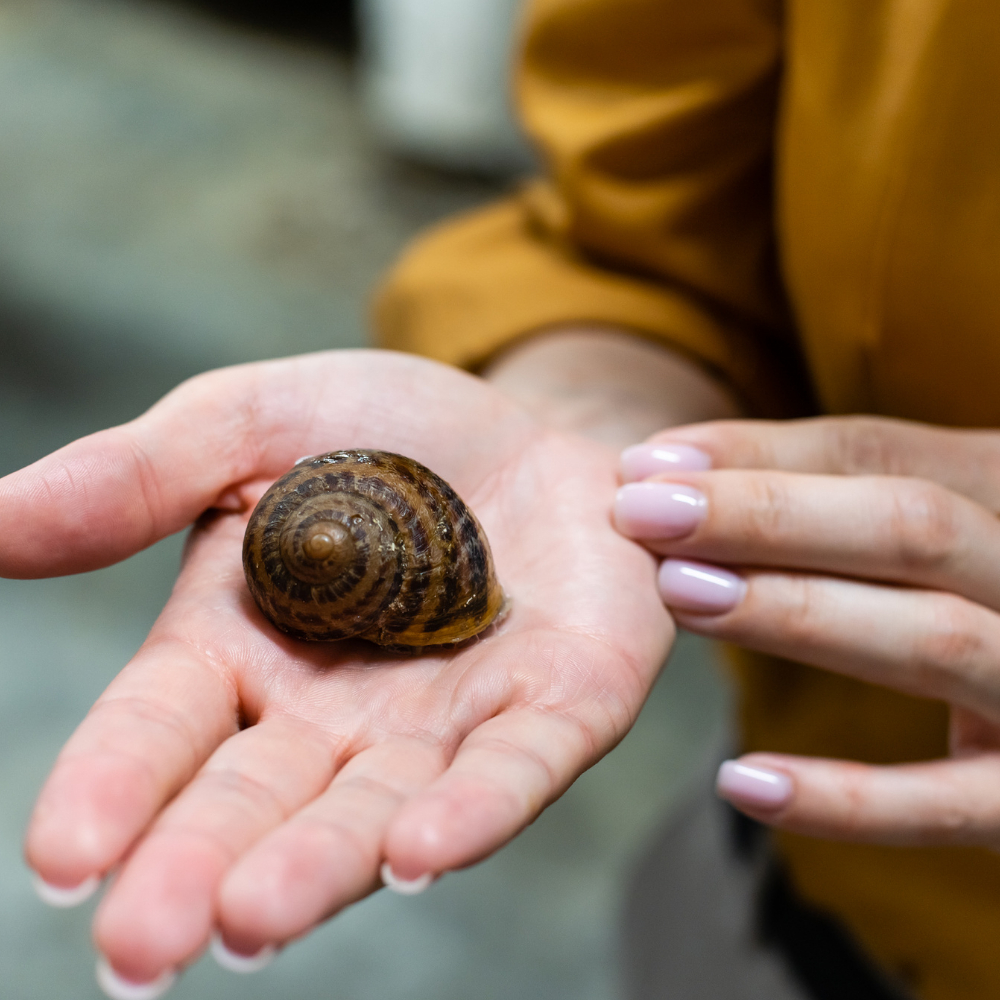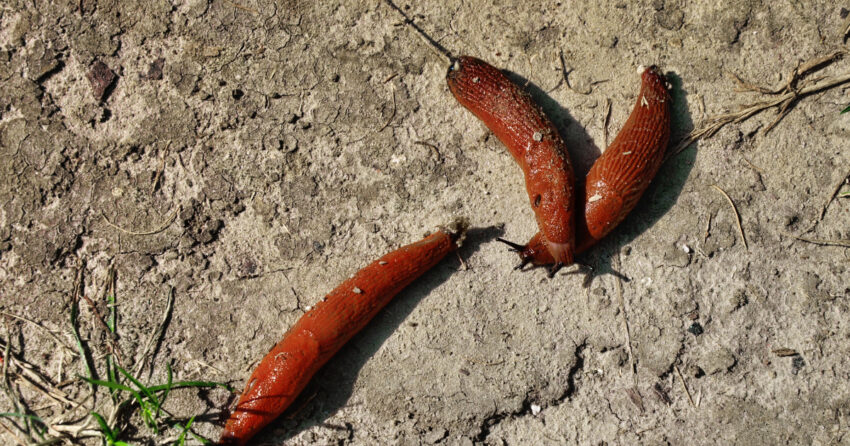For any gardener, waking up to find your prized plants ravaged by slimy trails and ragged holes is a disheartening experience. Slugs and snails, while beneficial decomposers in the grand scheme of nature, can quickly become unwelcome guests when they target your veggie patch or flowerbed.
The good news is that you don’t have to resort to harsh chemicals to keep these munching mollusks at bay. There are a variety of natural methods you can employ to create a slug- and snail-unfriendly environment and protect your precious greenery.

1. Outsmart them with Habitat Modification:
Slugs and snails thrive in cool, damp environments. By altering their preferred habitat, you can make your garden less attractive to them. Here’s how:
- Clear the Debris: Remove leaf piles, overgrown areas, and other damp hiding spots around your plants. Rake up fallen leaves regularly, especially after rain.
- Sunshine Power: Open up clogged areas to allow sunlight to penetrate the soil. This dries things out and discourages nighttime slug and snail activity.
- Mulch Magic: Use a thin layer (around 2 inches) of coarse mulch, like shredded wood chips or bark, around your plants. This creates a dry barrier that deters these slimy creatures. Avoid using wood shavings or cocoa mulch, as these can attract them.
2. Sprinkle on the Discouragements:
There are certain materials that slugs and snails find unpleasant to traverse. Here are some natural deterrents you can sprinkle around your plants:
- Coffee Grounds: The caffeine content in used coffee grounds acts as a natural slug and snail repellent. Scatter a thin layer around your plants, but be mindful of not overdoing it, as too much coffee can alter soil acidity.
- Eggshell Surprise: Eggshells are a great source of calcium for your plants, and also a spiky surprise for slugs and snails. Crush eggshells finely and sprinkle them around your plants or seedlings.
- Diatomaceous Earth (DE): This powder, made from fossilized algae, has microscopic sharp edges that dehydrate slugs and snails on contact. However, ensure you use food-grade DE and apply it carefully to avoid inhaling the dust.
3. The Power of Scents:
Certain strong scents can deter slugs and snails. Here are a few options to explore:
- Garlic Barrier: Slugs and snails dislike the strong smell of garlic. Create a garlic spray by soaking crushed garlic cloves in water for 24 hours. Strain the liquid and dilute it with more water before spraying it on your plants and around the garden perimeter.
- Citrus Shields: The acidic nature of citrus peels is another deterrent. Scatter orange, grapefruit, or lemon peels around your plants, replacing them every few days as the scent weakens.
4. Beneficial Beer Traps:
While you might enjoy a cold beverage on a hot day, slugs and snails find the yeasty scent of beer irresistible. Here’s how to create a beer trap:
- Sink shallow containers like jar lids or pie tins slightly into the soil around your plants.
- Fill the containers with beer.
- The slugs and snails will be lured in and drown.
5. Introduce Beneficial Predators:
Nature provides its own pest control solutions! Attract natural predators of slugs and snails to your garden:
- Birds: Songbirds love to snack on slugs and snails. Create a bird-friendly environment with nesting boxes and bird feeders.
- Beneficial Nematodes: These microscopic worms are natural predators of slugs and snails. They can be purchased online or at garden centers and applied to the soil according to the instructions.
6. Plant Power:
Certain plants are known to deter slugs and snails, while others actually attract them. Here’s a planting strategy:
- Decoy Dishes: Plant a sacrificial crop of slug- and snail-loving plants like lettuce or hostas away from your prized vegetables. These will distract the pests and keep them away from your main plants.
- Slug-Repellent Companions: Interplant your vegetables and flowers with herbs like thyme, sage, rosemary, and lavender. These strong-scented herbs not only add beauty to your garden but also help deter these slimy invaders.
7. Handpicking and Relocation:
Sometimes, the most straightforward approach is the best. During cool, damp evenings or mornings, you can handpick slugs and snails from your plants and relocate them to a far corner of your garden or a natural area away from your veggies.
8. Watering Wisely:
Slugs and snails are most active at night and during wet weather. Water your plants in the morning so the leaves and soil have time to dry out before nightfall. This makes the environment less hospitable for these nocturnal feeders.
Remember: Consistency is Key
While these natural methods are effective, remember that consistency is key. Reapply deterrents like coffee grounds and eggshells after heavy rain. Regularly clear debris and maintain a dry garden environment. By employing these strategies in combination and being persistent, you can create a haven for your plants and deter those pesky slugs and snails from turning your garden into their buffet.
Bonus Tip: Keep a lookout for slug and snail eggs, which are often clustered and resemble translucent spheres. Destroy them whenever you find them to minimize future populations.
With a little planning and these natural solutions, you can have a thriving garden that’s free from slug and snail damage. Now you can sit back, relax, and enjoy the fruits (and vegetables!) of your labor.

